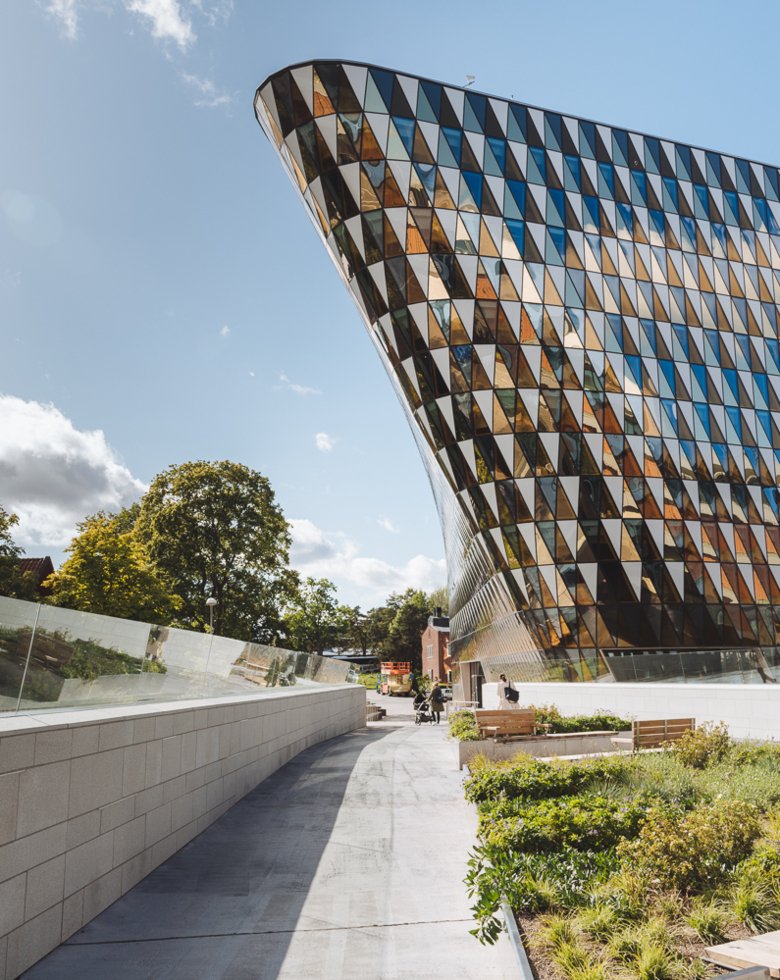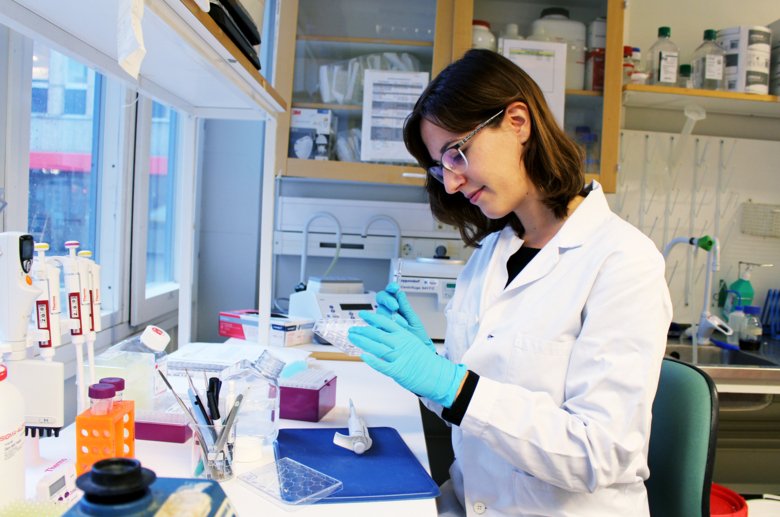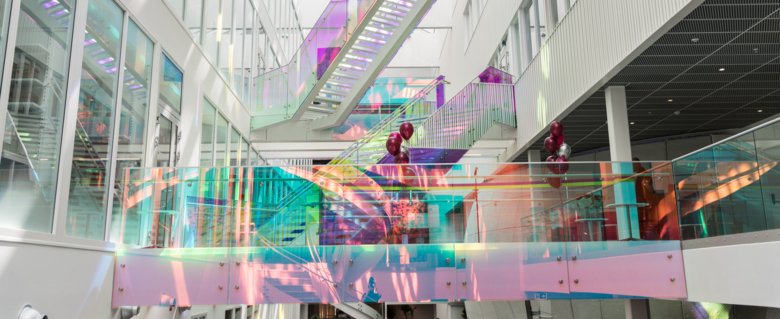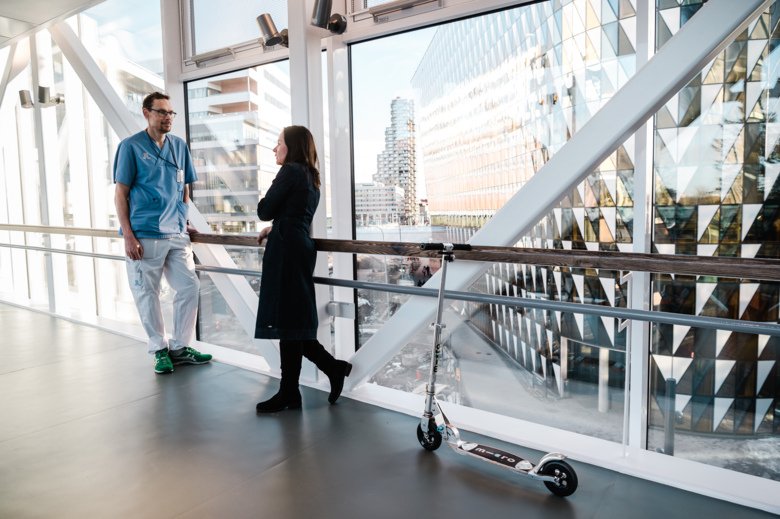Collaborate with Karolinska Institutet - A medical university
Basic conditions for commissioned research and collaborative research
Two possible forms of research collaboration
Karolinska Institutet (KI) welcomes research collaboration as it advances KI’s own research and education, as well as it spreads knowledge from KI for the benefit of society. Collaboration projects have to be in line with the overall mission of KI, and should be distinguished by quality, transparency and clarity, as well as compliance with relevant legislation, guidelines and applicable ethical principles. It is essential for KI that collaboration projects do not affect public confidence in KI or diminish the ability of KI to conduct research and education. Collaboration always requires written agreements.
There are two possible forms of research collaboration: commissioned research and other types of collaborative research. As the legal situation substantially differs, it is necessary to be clear about which collaboration form is envisaged when commencing discussions re- garding potential collaboration.
A collaboration agreement must be in place before the research begins. Key legal issues that need to be addressed in research agreements include for example the right to results (the teacher’s exception or ‘professor’s privilege’), publications, confidentiality, and damages.

Intellectual property rights of academic staff - the professor's privilege
At Swedish universities, academic staff enjoy the teacher’s exception or professor’s privi- lege. In simple terms, this means that researchers generally own the results of their work, unless otherwise agreed in the specific case.1 Consequently, in cases where results are to be transferred or otherwise made available to a collaboration partner, KI will secure the agreement of the researcher to transfer or license the intellectual property rights to the partner.2
Research license
A condition of all contracts is that KI and its researchers may continue to conduct research in the field. A minimum requirement is that KI has the right to use the results, without claims for compensation, for the purposes of further research and education (“research licence”), regardless of how any contractual IP transfer is affected.3
1. The Act on the Right to the Inventions of Employees (SFS 1949:345) stipulates that academic staff are exempt from the right that employers generally have to assume ownership of their employees’ inventions. In standard practice, the intellectual property rights of academic staff have come to involve more than just inventions.
2. Guidelines on intellectual property and corporate collaborations. Ref. 1–610/2017
1. The Act on the Right to the Inventions of Employees (SFS 1949:345) stipulates that academic staff are exempt from the right that employers generally have to assume ownership of their employees’ inventions. In standard practice, the intellectual property rights of academic staff have come to involve more than just inventions.
2. Guidelines on intellectual property and corporate collaborations. Ref. 1–610/2017
3. Principles for managing intellectual property in research contracts. Recommendations adopted by the General Assembly of the Association of Swedish Higher Education Institutions on 19 October 2016. REK 2016-3 161019 dnr 0067-16.

Publications
A contract may not undermine the researcher’s right to publish research findings.4
The goal of medical research is to increase scientific knowledge, with the aim of improving human health and healthcare in society.
Publication of findings is an important element of the research process. Scientists have a moral obligation to make their findings known to other scientists, profes- sionals and other societal stakeholders who may apply the findings in healthcare.
Therefore, researchers at KI reserve the right to publish results from research pro- jects even when these are sponsored by commercial organizations. The financing party has the right to review and comment on the content but does not have the right to stop a publication. The right to postpone a publication for specific reasons (e.g. due to patent procedures) must be specifically stipulated in the agreement.
Both commissioned research and collaborative research must result in the positive advancement of KI research. Therefore, KI always reserves the right to publish and present the results in academic contexts as well as the right to use them in con- tinuing research and educational activities at KI.
This applies also to commissioned research where the client is granted ownership of results and also in collaborative research where results generated at KI are trans- ferred to or exploited by a partner.
It is a priority of KI to ensure that publication of results occurs in a controlled man- ner, especially taking any confidentiality issues into account, and that the client or partner is offered the opportunity to protect results before they are made public. Therefore, KI as a rule consents to the results not being disseminated without first informing the client or partner and offering them, when necessary, the opportunity to postpone dissemination for a reasonable time, up to 90 days from the date on which the client or partner was informed. A detailed procedure for dissemination must be stipulated in the agreement. Regarding KI’s legal possibilities to keep in- formation secret, see the section Confidentiality.
4. The Swedish Higher Education Act (1992:1434), (Chapter 1, Section 6)

Commissioned research
There are two possible forms of research collaboration: commissioned research and other types of collaborative research.
Commissioned research’ means research projects carried out by KI under a commission contract with a client. KI is legally obliged to charge fees for commissioned research cor- responding to KI’s costs for the project - full cost recovery. There are no formal reasons preventing the client from assuming full ownership of the project results, but in many cases rights of use are sufficient. Ultimately, it is for the client and the researcher perfor- ming the work to agree on matters relating to results, but this must be regulated in the contract that the client and KI enter into before the work begins.
KI conducts its commissioned research projects with the care and thoroughness that can be expected of a distinguished research organisation. As research, by its very nature, is an experimental activity, KI can however not guarantee that the results will be commer- cially viable or that results will not conflict with existing intellectual property rights.
Collaborative research
Collaborative research’ means that KI conducts a research project with one or more collaboration partners. This can be a company, another university, or an institute. Each partner contributes resources in the form of funding, materials, existing knowledge, etc. As collaborative research does not involve full cost recovery for KI, the collaboration cannot result in the granting of rights to KI background, knowledge or project results unless separate and standard market remuneration for such rights is paid. Under EU State aid rules (which apply since KI is a public authority), erroneous granting of such rights could be regarded as prohibited State aid and result for example in the partner being obliged to repay the aid it has received in the form of rights granted without having to pay adequate remuneration.

Confidentiality
As a public authority, KI cannot go beyond the provisions of Swedish legislation to keep information secret. The Public Access to Information and Secrecy Act contains rules spe- cifically addressing commissioned research and collaborative research. It is worth noting that the legislators have taken the view that the expectation of the client or collaboration partner (‘the private party’) that certain information will be treated as confidential by KI (‘the public authority’) is most relevant when KI assesses whether certain information is disclosed under confidentiality provisions. As KI’s decision is subject to appeal, it is ultimately the Swedish courts that determine whether certain information comes under confidentiality provisions.
Confidentiality under a commissioned contract is specified as follows in
the Public Access to Information and Secrecy Act (Chapter 31, Section 12):5
Confidentiality applies to information on testing, the determination of qualities or quantities, valuation, scientific, technical, economic or statistical investigation or any other such task performed by the public authority on behalf of a private party, if it must be assumed that the task was commissioned on condition that the information not be disclosed.
...
Information contained in an official document may remain confidential for a maximum of twenty years. At universities and other higher education institutions, however, infor- mation may remain confidential for a maximum of ten years. At the Swedish Patent and Registration Office, information remains confidential for a maximum of fifty years.
Confidentiality in collaboration is specified as follows in the Public Access to Information and Secrecy Act (Chapter 24, Section 5):6
At universities and other higher education institutions, confidentiality applies to informa- tion about a private party’s business or operating circumstances, inventions or research results provided or produced in connection with research conducted, by agreement, in collaboration with a private party, if it must be assumed that the private party has partici- pated in the collaboration on condition that the information not be disclosed.
...
Information contained in an official document may remain confidential for a maximum of ten years.
5. Unofficial translation 6. Unofficial translation

Damages and limitation of liability
It is worth noting that KI, being a public authority, has no authority to enter into agreements that might result in the Swedish State being liable for unlimited damages. Collaboration agreements therefore need to contain reasonable limi- tations on liability. A risk assessment must be made on a case-by-case basis.
Dispute settlement
All contracts whether they concern commissioned or collaborative research, should specify the law to govern the contractual relationship and how a potential dispute would be settled. Since KI is a Swedish authority, contracts should be interpreted according to Swedish law and disputes should be settled in the courts of Sweden.
Commissioned research and collaborative research compared
The following provides a schematic overview of differences between commissioned research and collaborative research.
| COMMISSIONED RESEARCH | COLLABORATIVE RESEARCH | ||||
|---|---|---|---|---|---|
| Type of project | The client “owns” the research issue. | The parties have a common interest in the research issue. | |||
| Financing | The client stands for the cost of the project under the principle of full cost recovery. | All involved parties contribute. Any payments made to KI are regarded as financial contri- butions. | |||
| Publication | KI reserves the right to publish the results. | KI reserves the right to publish results that KI researchers have played a part in producing. | |||
| Rights | The client is granted owner- ship of or far-reaching rights to the results. KI reserves the right to use the results in its own continuing academic activities (research and teaching). | KI or the researcher retains ownership of the results gene- rated by KI. Transfer or licensing of results requires standard market remuneration. In case of transfer or exclusive licenses, KI retains the right to use results for further research and teaching activities. | |||
| Confidentiality | Confidentiality applies under Chapter 31, Section 12 of the Public Access to Information and Secrecy Act. | Confidentiality applies under Chapter 24, Section 5 of the Public Access to Information and Secrecy Act. |

The role of healthcare in collaborations
A significant part of KI’s research and education requires access to healthcare, which means a close collaboration with Region Stockholm within different activities and at different organisational levels. This collaboration is based on the ALF agreement, which regulates the state’s compensation to the county councils for certain costs related to education and medical research.
Region Stockholm is KI’s single largest collaboration partner. Around half of KI’s depart- ments have activities located in the environment of Region Stockholm, and many of KI’s researchers work within Region Stockholm’s large hospitals.
When healthcare is involved in a research collaboration, an assessment needs to be made, on a case-by-case basis, regarding the agreements that need to be in place and the responsibilities that KI can take.

Innovation support and education - Entrepreneurship
At KI, world-leading research continually improves our understanding of human health.
Research results are usually presented in scientific papers, but it is far from given that researchers also take steps towards transforming their ideas into products, methods and services of value to patients and society. Therefore, KI works to inspire, educate and encourage its students and employees for entrepreneurship within the life sciences.
It is KI’s ambition to create the best possible conditions to enable the implementation of research results and their direct benefit to society. To this end, KI has a holding company that can be involved in the commercial exploitation of research results produced at KI.
Contact
Do you represent a company or organisation that would like to collaborate with KI?
At ki.se/en/industrycollaborations you can find information about our different forms of collaboration as well as contact details.
As a prospective collaboration partner of Karolinska Institutet, it is easiest if you first discuss what you plan to do with your contact at the relevant Department or unit at the university.
For information on research topics and research groups, please visit ki.se/en/research.
